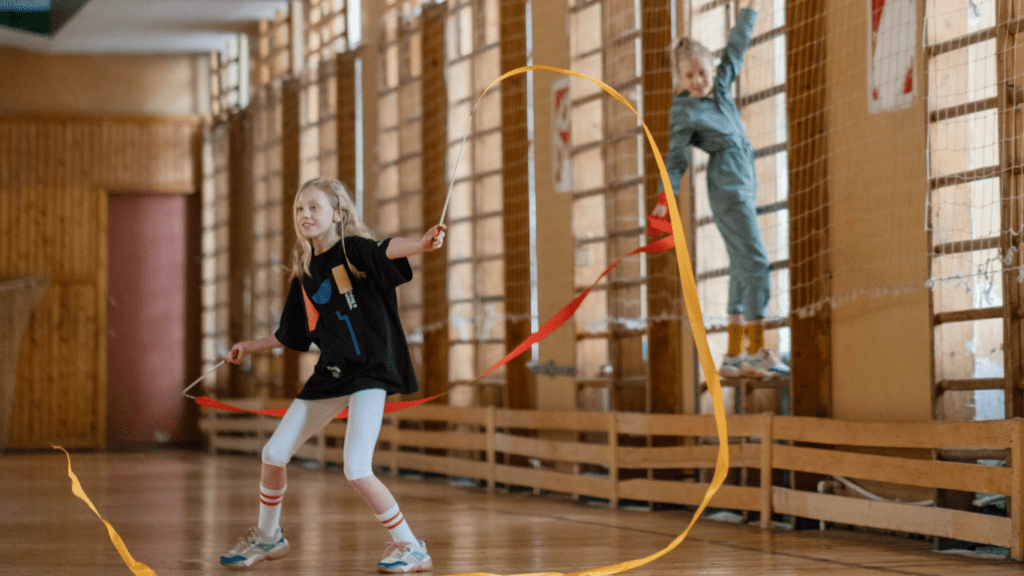Physical Health Benefits
Participating in team sports offers numerous physical health benefits for both kids and adults.
Improved Cardiovascular Health
Playing team sports improves cardiovascular health. Activities like soccer, basketball, and hockey involve consistent running or skating, which elevates heart rates and enhances cardiorespiratory fitness. The regular practice of such sports reduces risks of heart disease and hypertension.
Enhanced Muscle Strength
Team sports boost muscle strength through repetitive movements and resistance exercises. For instance, football, rugby, and rowing involve actions that build muscle mass and promote muscular endurance. Stronger muscles support better overall health and reduce injury risks.
Better Coordination and Flexibility
Sports enhance coordination and flexibility. Games like:
- volleyball
- gymnastics
- tennis
require intricate movements and precise control. Regular involvement in these sports refines motor skills, improves hand-eye coordination, and increases flexibility. This results in better athletic performance and reduced muscle strain.
Mental Health Benefits
Playing team sports significantly impacts mental health for kids and adults.
Reduced Stress and Anxiety
Team sports reduce stress and anxiety through regular physical activity. Physical activities release endorphins, which improve mood. Engaging with teammates also provides social support, which further alleviates stress. Practices and games offer structured routines, which provide a sense of stability.
Improved Self-Esteem
Participation in team sports enhances self-esteem by fostering a sense of achievement. Kids and adults gain confidence by mastering new skills. Being part of a team creates a sense of belonging, which positively affects self-worth. Celebrating team successes boosts individual morale, reinforcing positive self-assessment.
Enhanced Cognitive Function
Team sports improve cognitive function through strategic thinking and problem-solving. Competitive activities require quick decision-making, which sharpens mental acuity. Coordinating with teammates enhances memory and learning. Studies indicate that physical exercise increases brain plasticity, which benefits cognitive development.
Social Benefits
Team sports provide significant social benefits for both kids and adults. These activities facilitate social interactions, improve communication skills, and foster a sense of community.
Developing Teamwork Skills
Participating in team sports hones teamwork skills essential for personal and professional life. Players learn to collaborate with diverse individuals, understand different perspectives, and work towards a common goal, enhancing their ability to function effectively in team settings.
Building Lifelong Friendships

Team sports offer a platform for building lifelong friendships. Sharing experiences, challenges, and victories with teammates creates strong bonds. For example, children who play soccer often develop friendships that last beyond their school years, while adults in local leagues maintain social connections that enrich their personal lives.
Learning Leadership
Engaging in team sports fosters leadership qualities. Players assume various roles, with some taking on captain or mentor positions. These responsibilities help individuals develop decision-making, motivational, and organizational skills, applicable in both sports and everyday scenarios.
Academic and Professional Benefits
Participating in team sports offers substantial academic and professional advantages. Integrating physical activities into a routine can significantly enhance various skill sets valuable in both educational and career contexts.
Improved Academic Performance
- Team sports positively impact academic performance by instilling discipline and focus.
- Studies from the American College of Sports Medicine show that student-athletes tend to have higher GPAs and better time management skills, which translate into improved study habits.
- Engaging in regular physical activity boosts cognitive functions, such as memory retention and concentration, which can lead to higher academic achievement.
- A study could show that student-athletes outperformed their non-athlete peers in standardized test scores.
Enhanced Time Management Skills
Balancing sports and academics teaches essential time management skills. Juggling practice schedules, games, and schoolwork requires planning and prioritization.
As a result, student-athletes often develop the ability to effectively allocate time to multiple tasks, which is crucial for academic success and future professional endeavors. For instance, managing a busy training schedule while maintaining good grades demonstrates an ability to handle multiple responsibilities simultaneously.
Networking Opportunities
Team sports create valuable networking opportunities. Connecting with coaches, teammates, and sports professionals can lead to internships, job offers, and career advices.
Networking within a team environment promotes relationship-building skills that are beneficial in professional settings. In addition, alumni networks of sports teams can provide support and opportunities long after the active sports phase ends, offering advantages through shared connections and recommendations.
Long-Term Benefits
Participating in team sports offers long-term advantages, positively affecting an individual’s physical health, mental well-being, and social life.
Habit of Regular Exercise
Engaging in team sports fosters a routine of regular physical activity. Consistent participation in activities like:
- soccer
- basketball
- volleyball
ensures constant movement and exercise. Children who start playing team sports often carry this habit into adulthood, maintaining an active lifestyle. Regular exercise reduces the risk of chronic diseases, such as heart disease and diabetes, and contributes to maintaining a healthy weight.
Sustained Mental Well-being
Team sports provide lasting mental health benefits. Physical activity releases endorphins, which enhance mood and reduce anxiety. Regular engagement in sports helps manage stress and improve overall mental resilience.
Strategic gameplay fosters critical thinking and quick decision-making, honing cognitive skills over time. This boost in cognitive function can translate into improved academic or work performance, benefiting both children and adults.
Lifelong Social Connections
Team sports build enduring social connections. Shared experiences on the field form strong bonds among teammates, creating lasting friendships. These connections extend beyond the sports environment, providing a network of support throughout life.
In addition to friendships, team sports help develop communication and collaboration skills. Adults and children alike benefit from the sense of community and belonging that comes with being part of a team. Such connections are invaluable, offering support and camaraderie in various life stages.


 Amelie Glover played a pivotal role in shaping the success of News Flip Network through her expertise and dedication. With a keen eye for detail, she focused on ensuring the platform’s content flows smoothly, making it both engaging and informative. Glover’s efforts in organizing the site’s structure and managing editorial tasks helped create a seamless user experience, enhancing the accessibility of news for readers around the world.
Amelie Glover played a pivotal role in shaping the success of News Flip Network through her expertise and dedication. With a keen eye for detail, she focused on ensuring the platform’s content flows smoothly, making it both engaging and informative. Glover’s efforts in organizing the site’s structure and managing editorial tasks helped create a seamless user experience, enhancing the accessibility of news for readers around the world.